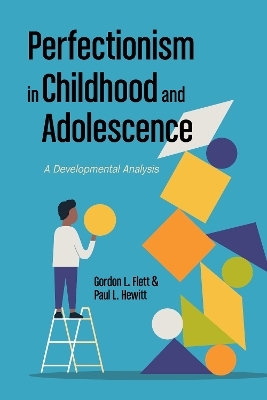
Perfectionism in Childhood and Adolescence
American Psychological Association (Verlag)
978-1-4338-3309-0 (ISBN)
Perfectionism is growing more prevalent among young people today, with increasing numbers of children admitting they feel pressure to be, or appear to be, perfect.
This book describes perfectionism's mental health costs and effects on achievement, explaining the myriad and often surprising ways children and adolescents exhibit perfectionism in their family, school, and social environments. Most important, the authors suggest clinical interventions to help perfectionistic children regain perspective, and accept their limitations.
Authors Gordon L. Flett and Paul L. Hewitt expertly summarize relevant studies, demonstrating that perfectionism is pernicious and requires a complex and multi-faceted approach to prevention and treatment. A clinically-focused section rounds out the book, with concrete steps counselors and educators can take to help build resilience and adaptability.
2023 Prose Award Finalist
Gordon L. Flett, PhD is professor in the department of psychology at York University in Toronto, Canada, where he holds a Canada Research Chair in Personality & Health and is also director of the LaMarsh Centre for Child and Youth Research. Dr. Flett is most recognized for his seminal contributions to research and theory on the role of perfectionism in pathology. His other research interests include the study of feelings of mattering to others in health and well-being, and the nature and correlates of suicidality in the elderly. Dr. Flett is a Fellow of the Association for Psychological Science, which has cited him as one of the top 25 most productive authors in psychology. Paul L. Hewitt, PhD is a professor in the department of psychology at the University of British Columbia. He is a registered clinical psychologist, and his research focuses primarily on personality vulnerabilities and their implications for psychological difficulties among adults, adolescents, and children. Dr. Hewitt is a fellow of the Canadian Psychological Association and of the Association's Section on Clinical Psychology. He was cited as one of the top 10 Canadian clinical psychology professors for research productivity, and was awarded the Donald O. Hebb Award for Distinguished Contributions to Psychology as a Science by the Canadian Psychological Association. Dr. Hewitt has published over 300 research papers, books, and chapters on perfectionism, psychopathology, and psychotherapy.
Introduction: Perfectionism in Childhood and Adolescence
Part I. Perfectionism: A Multifaceted Construct
Chapter 1: Core Themes and Definitions
Chapter 2: Perfectionism in Children and Adolescents: A Historical Perspective
Chapter 3: The Emergence and Prevalence of Perfectionism in Children
Chapter 4: The Comprehensive Model of Perfectionistic Behavior in Children and Adolescents
Chapter 5: Keys to Understanding Perfectionistic Children
Chapter 6: Measures of Perfectionism
Part II. The Development of Perfectionism and its Expression in Academic and Social Contexts
Chapter 7: The Development of Perfectionism
Chapter 8: Perfectionism and Problems in Learning, Performance, and Achievement
Chapter 9: Interpersonal and Psychosocial Aspects of Perfectionism
Part III. Clinical Considerations
Chapter 10: Perfectionism and Depression
Chapter 11: Perfectionism and the Suicidal Adolescent
Chapter 12: The Treatment of Perfectionism in Children and Adolescents
Chapter 13: Building Adaptability and Resilience in the Perfectionistic Child
References
Index
About the Authors
| Erscheinungsdatum | 29.03.2022 |
|---|---|
| Verlagsort | Washington DC |
| Sprache | englisch |
| Maße | 178 x 254 mm |
| Themenwelt | Geisteswissenschaften ► Psychologie ► Entwicklungspsychologie |
| Geisteswissenschaften ► Psychologie ► Klinische Psychologie | |
| Geisteswissenschaften ► Psychologie ► Persönlichkeitsstörungen | |
| Sozialwissenschaften ► Soziologie | |
| ISBN-10 | 1-4338-3309-3 / 1433833093 |
| ISBN-13 | 978-1-4338-3309-0 / 9781433833090 |
| Zustand | Neuware |
| Informationen gemäß Produktsicherheitsverordnung (GPSR) | |
| Haben Sie eine Frage zum Produkt? |
aus dem Bereich


